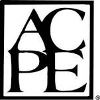Pharmacy
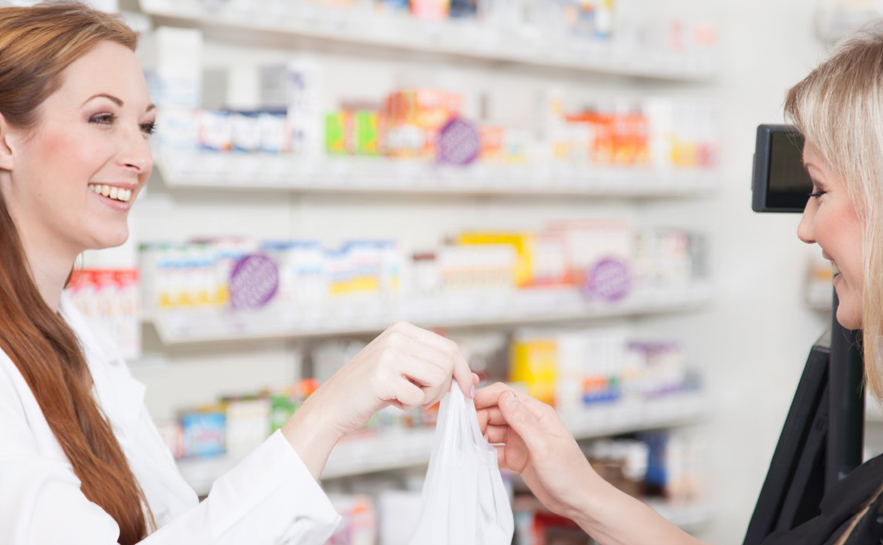
Request Information
Doctor of Pharmacy
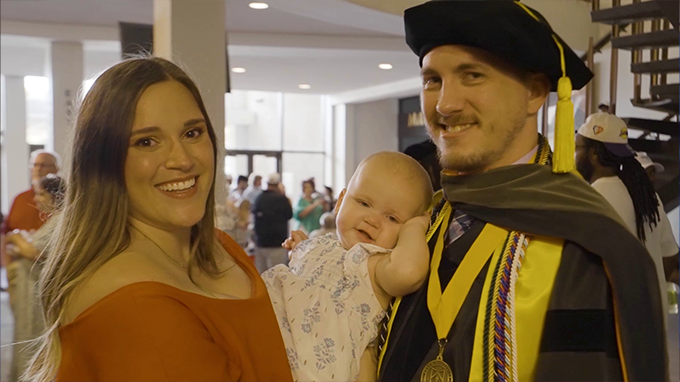
South University’s Doctor of Pharmacy (PharmD) is a 3-year degree* designed to provide progressive, quality postgraduate education for the pharmacy profession’s future practitioners**. As you work through the pharmacy degree program, you have the opportunity to gain skills that may help in your career, no matter where you might pursue work as a pharmacist, as you provide service to the community. The Pharmacy degree curriculum helps prepare you to face the challenges of the modern medical field, as well as pharmacists’ evolving role in the field.
Eligible Doctor of Pharmacy students can also concurrently enroll with the Master of Business Administration in Healthcare Administration degree. Students will need a Pharm.D. cumulative GPA of 2.7 or higher and will need to be approved for the concurrent enrollment. This will take place after completing 120 hours of coursework, i.e. after Pharmacy Quarter 4.
South University’s PharmD meets the requirements for all U.S. states with the exception of Arkansas and South Dakota. Professional licensure is required to work as a pharmacist. Please refer to the Professional Licensure section of the University catalog. South University cannot guarantee each graduate will pass the required licensure examinations. Outside agencies control the requirements for taking and passing certification/licensing exams and are subject to change without notice to South University.
*Average time to completion for continuously enrolled students full-time. Changing programs, taking remedial courses, taking time off from coursework, registering for fewer hours or unsuccessful attempts at course completion will increase the total length of the program and overall cost of education from what is disclosed.
**South University does not promise, or guarantee licensure, employment, or salary amounts.
Graduates are required to pass the national certification exam and obtain a state license in order to work in the field. (Exam names vary by program.) Please refer to the State Professional Licensure Determination and National Certification/Licensure section of the University catalog for additional information. South University cannot guarantee each graduate will pass the required licensure examinations.
Accreditation Council for Pharmacy Education
South University's Doctor of Pharmacy program in Savannah, GA, is accredited by the Accreditation Council for Pharmacy Education 190 S LaSalle ST #3000; Chicago, IL 60603; 312-664-3575; www.acpe-accredit.org).
Admission Requirements
Procedure for Admission to the Doctor of Pharmacy Program
South University School of Pharmacy will accept only applications that are submitted through PharmCAS at:
https://www.pharmcas.org/.
Admission Cycle
Students are accepted into the Doctor of Pharmacy degree program once each June.
General Admission
For optimum consideration during an admissions cycle, prospective students are encouraged to submit a completed application to PharmCAS as early as possible. Direct applications to South University will not be
processed. Admission to the program is competitive and will be granted on a rolling basis for applications postmarked no later than March 1 of each year.
Admission Criteria
Consideration for admission will be based on the applicant's potential for academic and professional achievement and an assessment of written and verbal communication skills, critical thinking skills, integrity, dedication, motivation, character and maturity. To be considered for admission to the Doctor of Pharmacy degree program a prospective student must:
1. Complete or be in the process of completing a minimum of two years of pre-pharmacy course requirements (60 semester hours) at an acceptable accredited collegiate institution. The student must earn a grade of C
(2.0) or better in each prerequisite course. All pre-pharmacy coursework presented in the table below must be completed before matriculation to Doctor of Pharmacy degree program on or before May 25th of the program entrance year.
Pre-pharmacy Requirements*
English Composition/English Literature
3 sem. hrs. (1 sem. or 4.5-qtr. hrs.)
Arts & Humanities/Social & Behavioral Sciences
12 sem. hrs. (4 sem. or 18 qtr. hrs.)
Biology Ic
4 sem. hrs. (1 sem. or 6 qtr. hrs.)
General Chemistry Ic
4 sem. hrs. (1 sem. or 6 qtr. hrs.)
General Chemistry IIc
4 sem. hrs. (1 sem. or 6 qtr. hrs.)
Organic Chemistry Ic
4 sem. hrs. (1 sem. or 6 qtr. hrs.)
Organic Chemistry IIc
4 sem. hrs. (1 sem. or 6 qtr. hrs.)
Human Anatomy/Physiology Ie, f
3 sem hrs. (1 sem or 4.5 qtr. hrs.)
Human Anatomy/Physiology IIe, f
3 sem hrs. (1 sem or 4.5 qtr. hrs.)
College Algebra or higherd
3 sem. hrs. (1 sem. or 5 qtr. hrs.)
Other Math and Science Coursese
16 sem. hrs. (5 sem. or 24 qtr. hrs.)
- Recommended courses in these disciplines include psychology, sociology, anthropology, philosophy, history, literature, art, music, theater, drama, business, education, government, and foreign languages.
- General Biology II, Botany, Zoology, or similar health-foundational biology are also acceptable. These courses must include a laboratory. Applicants with an undergraduate degree or higher in biological science are exempted from Biology I and II pre-requisite requirements.
- These courses must include laboratory. Applicants with an undergraduate degree or higher in Chemistry are exempted from Chemistry I and II pre-requisite requirements.
- Calculus preferred.
- Preferred courses: Microbiology, Statistic, Genetics, Cell Biology, Immunology, Molecular Biology, Biochemistry, or Physics.
Notes:It is recommended that the student take two science courses and at least five courses (a minimum of 17 semester hours of credit) each semester to ensure appropriate preparation for the academic challenge of the School of Pharmacy.
Course substitutions may be considered at the discretion of the Assistant Dean for Admissions of the School of Pharmacy.
- Earn a recommended cumulative grade point average of 2.80 (minimum 2.50) on a 4.0 scale. (A science GPA of 3.0 or better is recommended.)
- Submit a completed Pharmacy application through www.pharmcas.org. Applications mailed directly to South University will not be accepted.
- Submit a minimum of two letters of recommendation directly to PharmCas; however, three letters are preferred.
- Demonstrate the oral and written communication skills required to interact with patients and professional colleagues, and expected of a professional doctoral level student.
- Complete the South University School of Pharmacy's on campus personal interview with members of the Faculty and the Admissions Committee (by invitation only).
- Provide directly to PharmCAS all transcripts. Transcripts for all college coursework must be submitted since academic performance for all college coursework undertaken by the student will be evaluated.
- Applicants for whom English is a Second Language must submit to Pharm CAS a minimum paper-based TOEFL score of 550 or the electronic-based score of 79-80 to be considered for the program or completes (with a passing grade in all courses) a minimum of two (2) academic terms at a regionally or nationally accredited U.S. post-secondary institution in which instruction is delivered primarily in English.
- International students with a current F1 Visa are eligible to apply for admission. It is preferred to have completed 30 semester hours at a regionally accredited college/university in the United States. Required pre-requisite Course work completed at international (non-US) institutions is accepted if it meets the admission requirements. Applicants who have attended international institutions must order a foreign transcript evaluation from World Education Services (WES) through the PharmCAS application. The evaluation report must include institution information, course tile, credit hours, and grades. Credit will be given only for applicable courses that can be used to fulfill prerequisites, and they may be required to completed additional courses prior to enrollment in order to fulfill any remaining prerequisites.
Exceptions to the Minimum CGPA
Applicants with CGPAs lower than the stated program minimum may be considered for admission with significant evidence of academic and professional potential demonstrated by the career and/or personal accomplishments indicated in the career résumé (including a personal statement of academic and professional goals), and academic or professional letters of recommendation. Exceptions must be recommended by the School of Pharmacy Assistant Dean for Admissions, Chair of the Admissions Committee, or School Dean.
Technical Standards for Doctor of Pharmacy Degree Program Admission
The educational mission of the South University School of Pharmacy is to prepare pharmacists for life-long learning in the practice of collaborative patient-centered care, and promote excellence in teaching, scholarship and service.
Students admitted to the Doctor of Pharmacy degree program must also meet the technical standards for admissions. These technical standards outline the essential functions that candidates for the Doctor of Pharmacy degree must be able to perform. These essential functions reside in the following categories: Observation, Communication,
Sensory/Motor, Intellectual, and Behavior/Social. However, it is recognized that degrees of ability vary among individuals. The South University School of Pharmacy is committed to supporting its students by any reasonable means to complete the course of study leading to the Doctor of Pharmacy degree.
- Observation: A candidate must be able to observe demonstrations and experiments in the basic sciences, including, but not limited to, physiological and pharmacological demonstrations in animals, evaluation of microbiological cultures, and microscopic studies of microorganisms and tissues in normal and pathological states. A candidate must be able to observe a patient accurately at a distance and close at hand. In detail, observation necessitates the functional use of the sense of vision and other sensory modalities.
- Communication: A candidate must be able to communicate effectively and sensitively with patients. The focus of this communication is to elicit information, describe changes in mood, activity and posture, and perceive nonverbal communication. Communication includes speech, reading, writing, and computer literacy. A candidate must be able to communicate effectively and efficiently in oral and written forms with all members of the healthcare team in a timely manner.
- Sensory/Motor: A candidate must have sufficient motor function to elicit information from patients by physically touching patients, e.g. assessing range of motion of a joint, taking blood pressure readings, taking a pulse reading. A candidate must be able to execute motor movements to provide general care and emergency treatments to patients, e.g. first aid treatments, cardiopulmonary resuscitation (CPR). A candidate must be able to execute motor movements required in the compounding of medications inclusive of using techniques for preparing sterile solutions, e.g., parenteral or ophthalmic solutions. Such actions require coordination of both gross and fine muscular movements, equilibrium, and functional use of the senses of touch and vision.
- Intellectual(Conceptual, Integrative, and Quantitative Abilities): A candidate must have the ability to measure, calculate, reason, and analyze. A candidate must be able to synthesize and apply complex information in a timely manner. A candidate must be fully alert and attentive at all times in clinical settings.
- Behavioral/Social Attributes: A candidate must possess the emotional health required for full utilization of his or her intellectual abilities, the exercise of good judgment, and the prompt completion of all responsibilities attendant to the interaction with patients. A candidate must possess the ability to develop mature, sensitive, and effective relationships with patients. A candidate must be able to tolerate physically taxing workloads and to function effectively under stress. A candidate must be able to adapt to changing environments, to display flexibility and learn to function in the face of uncertainties inherent in the clinical problems of many patients. A candidate must possess compassion, integrity, interpersonal skills, and motivation to excel in pharmacy practice.
Requirements for Matriculation Applicants who have been accepted into the Doctor of Pharmacy program must fulfill the following before they can officially enter the program:
- Remit the $500 acceptance fee by the date designated in the acceptance agreement. The entire acceptance fee is credited to the first quarter's tuition.
- Submit a college transcript after each term completed following acceptance.
- Submit self-certification of high school graduation or GED completion.
- Submit proof of immunization or for immunity to Measles/Mumps/Rubella (MMR), Varicella (Chickenpox), Tetanus/Diphtheria, and Hepatitis B. In addition, students must complete the annual Tuberculin Test (PPD). An Immunization Clearance Form provided as part of the acceptance package must be completed and returned along with other immunization documentation.
- Present a Basic Adult Life Support certificate.
- Submit proof of medical insurance coverage.
- Satisfactorily complete a Background check.
Complete additional coursework if required by the Admissions Committee and submit additional documents as requested by the Office of Admissions.
Failure to comply with these requirements may result in forfeiture of your acceptance.
Laptop Computer Requirement
Laptop computers are required for use in the multimedia classroom. All students are required to have a laptop computer with Internet access. Purchase of a new laptop is not recommended until just before matriculation into the program so that performance vs. cost can be optimized. Students may buy any laptop that meets the minimum computer specifications which are set by the school in the spring of each year.
For additional admissions information please see the admissions section here.
Admissions Calendar
Admissions Calendar 2024-2025July 2024
Start Accepting Applications for 2025
August 2024 - May 2025
Admissions Interviews
May 1, 2025
Application Deadline
June 2025
Admissions Decisions Finalize
June 2025
Classes begin
Career Outlook
These are some of the career options* you can explore when you have earned your degree:
- Pharmacist
- Pharmacology Research
*South University does not promise or guarantee licensure, employment, or salary amounts.
Graduates are required to sit for and pass the national certification exam and obtain a state license in order to work in the field. (Exam names vary by program) Please refer to the State Professional Licensure Determination and National Certification/Licensure section of the University catalog for program and state specific information. South University cannot guarantee each graduate will pass the required licensure examinations. Outside agencies control the requirements for taking and passing certification/licensing exams and are subject to change without notice to South University. Students must pass the required licensure to work in their respective field.
Curriculum
These courses are elective courses that are available for student to take in fulfillment of the 9 hours of electives needed to fulfill the hour requirements for graduation (219) from the School of Pharmacy. They can be chosen by the student when offered. Note electives are based on faculty expertise and availability. As new faculty are hired additional electives may be offered.
These courses are elective courses that are available for student to take in fulfillment of the 9 hours of electives needed to fulfill the hour requirements for graduation (219) from the School of Pharmacy. They can be chosen by the student when offered. Note electives are based on faculty expertise and availability. As new faculty are hired additional electives may be offered.
These courses are elective courses that are available for student to take in fulfillment of the 9 hours of electives needed to fulfill the hour requirements for graduation (219) from the School of Pharmacy. They can be chosen by the student when offered. Note electives are based on faculty expertise and availability. As new faculty are hired additional electives may be offered.
Students are required to take three of the following:
One additional elective is available and will add one credit to the program for a total of 220 credit hours.
Note(s):
*Students are required to take 7 of the 12 listed rotations (56 credit hours) along with the 3 Essential Knowledge of Practice Review courses (10.5 credit hours) for a total of 65 required credit hours. Students will
take PHA6525, PHA6526, PHA6527, PHA6528, PHA6503, PHA6504, PHA6505 and any combination of three of the following: PHA6529, PHA6530, PHA6531, PHA6532, PHA6533, PHA6534, PHA6535, PHA6536 and PHA6537. In addition, Grand Rounds (PHA6339) is an optional elective that students may elect to take in one of the last three quarters of the curriculum and will be scheduled at the discretion of the School of Pharmacy.
Prerequisites
All pre-pharmacy coursework must be completed prior to matriculation to the South University Doctor of Pharmacy program on or before May 25th of the program entrance year. The student must earn a grade of C (2.0) or better in each prerequisite course.
Prerequisite Requirements
|
Course Title |
Semester Hours |
|
English Composition |
3 sem. hrs. / 4.5 qtr. hrs. |
|
Non-Science/Math Electives (a) |
12 sem. hrs. / 18 qtr. hrs. |
| General Biology I (b) |
4 sem. hrs. / 6 qtr. hrs. |
| Anatomy and Physiology I and II |
6 sem. hrs. / 9 qtr. hrs. |
|
General Chemistry I and II (c) |
8 sem. hrs. / 12 qtr. hrs. |
|
Organic Chemistry I and II (c) |
8 sem. hrs. / 12 qtr. hrs. |
| College Algebra I or Higher (d) |
3 sem. hrs. / 4.5 qtr. hrs. |
| Science/Math Electives (e) |
16 sem. hrs. / 24 qtr. hrs. |
|
TOTAL |
60 sem. hours / 90 qtr hours |
Comments on above:
a. Non-Science/Math Electives must fall in the Humanities, Arts or Behavioral/Social Sciences.
b. General Biology II, Botany, Zoology or similar health-foundational biology courses are acceptable. These courses must include a lab. Applicants with an undergraduate degree or higher in biological science are exempted from Biology I prerequisite requirements.
c. These courses must include a laboratory. Applicants with an undergraduate degree or higher in Chemistry are exempt from Chemistry I and II prerequisite requirements.
d. Calculus is preferred.
e. Preferred courses include: Microbiology, Molecular or Cell Biology, Genetics, Immunology, Statistics, Biochemistry or Physics.
Program Quality Indicators
South University, Savannah School of Pharmacy: Program Quality Indicators
| Program Outcomes by Calendar Year |
2020 |
2021 |
2022 | 2023 | 2024 |
|
Alumni Involvement: |
NR | NR | NR | 93 |
118 |
|
Residency Placement |
42% |
67% |
63% |
67% |
53% |
|
Program Outcomes by Graduation Class |
2020 |
2021 |
2022 |
2023 |
2024 |
|
Licensure Pass Rates - NAPLEX |
83% |
78% |
57% |
64% |
62% |
|
Graduation Rates |
78% |
82% |
78% |
79% |
70% |
|
Graduating Student Self-Assessment |
91% |
95% |
94% |
75% |
100% |
|
Year Admitted |
2017 |
2018 |
2019 |
2020 | 2021 |
| Diversity |
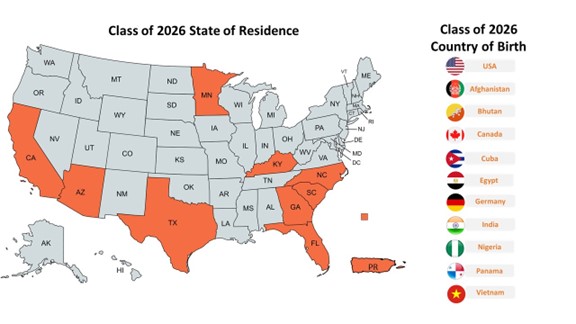
|
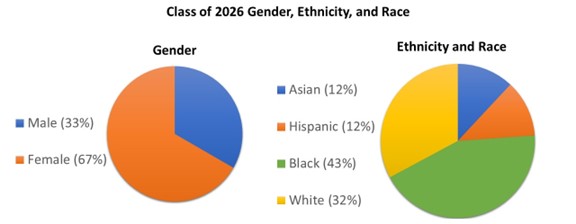 |
Abbreviations
AACP: American Association of Colleges of Pharmacy
ASHP: American Society of Health-System Pharmacists
NAPLEX: North American Pharmacist Licensure Examination
NR: Not reported. This is new indicator not previously reported.
TBD: To be determined. This indicator is currently being gathered.
Outcomes
Accelerated Program
One of only a limited number of accelerated Doctor of Pharmacy Degree programs nationwide through full-time continuous enrollment, South University provides four academic years of study within three calendar years. After being accepted to the South University School of Pharmacy, students begin a 12-quarter schedule.
Curriculum
The carefully structured curriculum is designed to prepare graduates for high standards of contemporary pharmacy practice as well as the evolution of the profession.
Teaching Method
In a setting of collaborative learning and teamwork, the program interrelates the basic sciences and practice.
Technology and Facilities
The South University School of Pharmacy offers personalized and technical instructional delivery utilizing industry-standard equipment and facilities.
The role of pharmacists in the medical field is changing and evolving to meet the demands of the profession and society. The Doctor of Pharmacy degree program's curriculum at South University is structured to produce graduates who can adapt to the profession's changes while also maintaining high standards of pharmacy practice. South University's progressive curriculum is designed to incorporate technology in addition to a traditional classroom setting.
South University Campus and Affiliations with Healthcare Facilities
The South University School of Pharmacy in Savannah is a 40,000-square-foot, freestanding, facility designed specifically to house a modern pharmacy school. The building provides instructional, laboratory, and office facilities for pharmacy students, faculty and administrators. This facility also provides two large modern lecture halls and an adequate number of small classrooms to facilitate small group instruction.
A General Purpose Laboratory is located in the building. This laboratory includes rooms for patient counseling practice and teaching physical assessment. All rooms have videotape/playback capabilities. In addition, a sterile products room and a model pharmacy are available. This practice laboratory accommodates up to 34 students per class, and is designed to emulate real practice settings as well as to provide maximum use in the academic program. There is also a 32-station Analytical Chemistry Laboratory that is used for chemistry, pharmaceutics, and professional laboratory courses. A Drug Information Center on the first floor provides an active learning center in the School of Pharmacy.
Practice sites have been recruited to support the experiential component of the curriculum. Early activity will be focused on the introductory practice experiences. Students will be precepted at sites in all three phases of practice experience: introductory, intermediate and advanced. Experiential sites will include, but not be limited to, chain and independent community pharmacies, teaching and community hospitals, long term care facilities, managed care facilities, pharmaceutical companies, home infusion therapy companies, regulatory agencies, family practice clinics and a veterinary hospital, among others.
South University has developed a program that is visionary in its approach to educating Pharmacy students, with a carefully structured curriculum designed to prepare graduates for both high standards of contemporary pharmacy practice and the evolution of the profession. At South University, we have integrated Medicinal Chemistry, Pharmacology, and Therapeutics into one combined continuing course sequence developed in full collaboration by science and practice faculty. The resulting efficiency allows a rigorous comprehensive didactic component in a curriculum that contains 12 months of full-time rotations using an accelerated, full-time 12-quarter schedule designed to deliver four academic years in three calendar years.
Program Student Learning Outcomes:
Domain 1: Foundational Knowledge
1.1. Apply principles of chemistry, biochemistry, and pharmacology to medication safety and efficacy.
1.2. Apply the principles of pharmaceutical science and calculations to drug design and drug delivery systems.
1.3. Apply pharmacokinetic, pharmacodynamic, and pharmacogenomic principles to therapeutic strategies.
1.4. Compare and contrast the physiology and biochemistry of normal body system function to that of abnormal function.
1.5. Critically analyze literature related to drugs and diseases to enhance clinical decision-making.
Domain 2: Essentials for Practice and Care
2.1. Collect subjective and objective patient information to identify medication and medical-related problems.
2.2. Assess and analyze information to determine effectiveness of therapy, identify problems, and prioritize needs to achieve optimal patient care.
2.3. Design an individual patient-centered care plan in collaboration with the patient and other health care professionals that is evidence-based and cost-effective to maximize desired effects.
2.4. Implement the care plan in collaboration with the patient, caregiver, and other healthcare professionals.
2.5. Follow-up and monitor the care plan to evaluate its effectiveness and modify the plan as needed.
Domain 3: Approach to Practice and Care of Individual Patients
3.1 Demonstrate accurate, safe, and time-sensitive preparation, dispensing, and administration of pharmaceuticals.
3.2 Manage pharmacy resources to optimize pharmacotherapy outcomes for individual patients.
3.3 Educate patients and health care providers.
Domain 4: Approach to Practice and Care of Populations
4.1 Demonstrate skills needed to participate in, or provide, preventive services.
4.2 Apply research processes to ensure informed decision-making.
Personal and Professional Development
5.1 Examine personal attributes that may enhance or limit personal and professional growth.
5.2 Demonstrate responsibility for creating and achieving shared goals, regardless of organizational position.
5.3 Engage in innovative and creative methods to accomplish goals.
5.4 Demonstrate professional citizenship in the delivery of patient care, distribution of medications, and the promotion of wellness and disease prevention.
5.5 Advocate for the profession and patients.
5.6 Effectively communicate verbally and nonverbally when interacting with an individual, group, or organization.
5.7 Demonstrate problem solving skills including the ability to think critically, exercise professional judgment, and articulate and defend a decision.
5.8 Exhibit behaviors and values that are consistent with the trust bestowed to the profession by patients, other healthcare providers, and society.
5.9 Demonstrate knowledge of, and compliance with, federal and state laws/regulations governing the practice of pharmacy.
Create Value for Stakeholders of the Health Care System
6.1 Demonstrate the ability to create a business plan and/or strategy to launch a new service, product, or business line or improve an existing one.
6.2 Demonstrate the ability to apply performance improvement strategies to monitor the quality of a service, product, or business.
6.3 Demonstrate the ability to apply business and financial management tools to monitor the performance of a service, product, or business.
Handbooks
School of Pharmacy Handbooks
Download the School of Pharmacy Student Handbook below
Download the Experiential Education handbooks for South University preceptors below.
- 2023-2024 APPE Handbook (PDF)
- 2023-2024 IPPE Handbook (PDF)
South University School of Pharmacy
The South University School of Pharmacy welcomes students into a learning community designed to facilitate critical thinking and develop problem-solving skills while providing the industry current technology and coursework essential for real-world practice. Our accelerated PharmD program is one of only a limited number nationwide and the only one in the Southeastern United States that provides four academic years of study within three calendar years.
Faculty
South University, Savannah
Office of the Dean
Adeniji, Adegoke O., PhD, RPh
Interim Dean
Chair, Department of Pharmaceutical Sciences
Associate Professor of Pharmaceutical Sciences (Pharmacology)
BPharm, University of Ibadan, Nigeria
PhD, Pharmacology and Toxicology, University of Sciences, Philadelphia
aadeniji@southuniversity.edu
Fetterman, James W., Jr., PharmD
Assistant Dean for Experiential Education
Professor of Pharmacy Practice
BS, Chemistry and Biology, East Tennessee State University
BS, Pharmacy, Mercer University School of Pharmacy
PharmD, Mercer University School of Pharmacy
jfetterman@southuniversity.edu
Singh, Ajay N., PhD,
Assistant Dean of Admissions
Associate Professor of Pharmaceutical Sciences (Medicinal Chemistry)
BS, Chemistry, University of Mumbai, India
MS, Chemistry, University of Mumbai, India
PhD, Chemistry, University of Houston
asingh@southuniversity.edu
Snella, Kathleen A. PharmD, FCCP
Associate Dean for Academic Affairs and Associate Professor of Pharmacy Practice
PharmD, The University of Texas at Austin/The University of Texas at San Antonio Health Sciences Center
BS Pharmacy, The University of Iowa
ksnella@southuniversity.edu
Tavoloni, Alessandra J. ABA, BS, MEd
Assistant Dean of Student Affairs
ABA Marketing and Propaganda, SENAI Brazil
BS Health and Physical Education, Union College
BS Sports and Recreation Management, Union College
MA Education, Union College
atavoloni@southuniversity.edu
Department of Pharmacy Practice
Ombengi, David N., PharmD, MBA, MPH
Chair, Department of Pharmacy Practice
Director of Community Outreach
Director of PharmD/MBA Program
Associate Professor of Pharmacy Practice (Ambulatory Care and Family Medicine/Cardiology)
MPH, Tulane University School of Public Health and Tropical Medicine
MBA, University of St. Thomas
PharmD, Duquesne University
dombengi@southuniversity.edu
Abdulrahman, Ahmed, PharmD
Assistant Professor of Pharmacy Practice (Ambulatory Care)
Clinical Pharmacy Specialist
Associate of Science, Georgia State University
PharmD, Philadelphia College of Osteopathic Medicine
Aabdulrahman@southuniversity.edu
Barry, Patrick A. PharmD
Co-Director of Alumni Relations
Assistant Professor of Pharmacy Practice (Internal Medicine)
AA, Gulf Coast State College
PharmD, South University School of Pharmacy
pbarry@southuniversity.edu
Carter, John Mark, PharmD
Assistant Professor of Pharmacy Practice (Community Practice)
PharmD, University of Georgia College of Pharmacy
jcarter@southuniversity.edu
Cummings, Jamessa D. PharmD, MMHC
Assistant Professor of Pharmacy Practice (Ambulatory Care)
PharmD, Lipscomb University College of Pharmacy
jcummings@southuniversity.edu
Fetterman, James W., Jr., PharmD
Assistant Dean for Experiential Education
Professor of Pharmacy Practice (Critical Care and Nutrition, Pharmacy Administration)
BS, Chemistry and Biology, East Tennessee State University
BS, Pharmacy, Mercer University School of Pharmacy
PharmD, Mercer University School of Pharmacy
jfetterman@southuniversity.edu
Hand, Justin M., PharmD
Adjunct Professor of Pharmacy Practice (Hospital and Institution Pharmacy)
Co-Director of Alumni Relations
PharmD, South University School of Pharmacy
jhand@southuniversity.edu
Holmes, Zach R., PharmD
Assistant Professor of Pharmacy Practice (Internal Medicine)
PharmD, University of Georgia College of Pharmacy
zholmes@southuniversity.edu
House, Lauren, PharmD
Adjunct Professor of Pharmacy Practice (Internal Medicine and Oncology)
PharmD, South University School of Pharmacy
lahouse@southuniversity.edu
Hua Ling, PharmD, BCPS, BCCP, AACC, CLS
Adjunct Professor of Pharmacy Practice (Cardiology)
PharmD, Nova Southeastern University
hling@southuniversity.edu
Jaggers, Rondell BS, PharmD, FASHP
Adjunct Professor, Pharmacy Practice
BS Pharmacy, University of Kentucky
PharmD, University of Kentucky
Administrative Residency, Shands Hospital at UF
rjaggers@southuniversity.edu
Lopez, Sarah L. BS, PharmD, BCPS
Assistant Professor of Pharmacy Practice (Internal Medicine)
BS Psychology, Oregon State University
PharmD, South University School of Pharmacy
slopez@southuniversity.edu
McCall, Stephen H., PharmD, RPh, BCPS, BCCCP
Assistant Professor of Pharmacy Practice (Emergency Medicine)
PharmD, University of Georgia College of Pharmacy
smccall@southuniversity.edu
Meier, Mackenzi, PharmD, BCPS, BCACP
Assistant Professor of Pharmacy Practice (Ambulatory Care)
PharmD, University of Wyoming
mmeier@southuniversity.edu
Osborne, Melissa R., BS, PharmD
Academic Success Coordinator
Assistant Professor of Pharmacy Practice (Psychiatry and Pharmacy Administration/Entrepreneurship)
BS Psychology, University of Tennessee – Knoxville
PharmD, Mercer University Southern School of Pharmacy
mosborne@southuniversity.edu
Pereira, Angelique, PharmD, BCPS
Director of Interprofessional Education
Assistant Professor of Pharmacy Practice (Internal Medicine)
PharmD, Rutgers, The State University of New Jersey
apereira@southuniversity.edu
Slack, Steven. BS, PharmD
Assistant Professor of Pharmacy Practice (Internal Medicine)
BS Chemistry, Georgia College & State University
PharmD, University of Georgia College of Pharmacy
sslack@southuniversity.edu
Associate Dean for Academic Affairs
Associate Professor of Pharmacy Practice (Ambulatory Care)
PharmD, The University of Texas at Austin/The University of Texas at San Antonio Health Sciences Center
BS Pharmacy, The University of Iowa
ksnella@southuniversity.edu
Ten Eick, Andrew, BS Pharm, PharmD
Director of Continuing Education
Associate Professor of Pharmacy Practice (Pediatrics and Pharmacy Administration)
BS, Pharmacy, University of Iowa
PharmD, University of Iowa
ateneick@southuniversity.edu
Adeniji, Adegoke O., PhD, RPh
Chair, Department of Pharmaceutical Sciences
Associate Professor of Pharmaceutical Sciences (Pharmacology)
BPharm, University of Ibadan, Nigeria
PhD, Pharmacology and Toxicology, University of Sciences, Philadelphia
aadeniji@southuniversity.edu
Agbowuro, Ayodeji A. BPharm, MSc, PhD
Assistant Professor of Pharmaceutical Sciences
BPharm, University of Jos
MSc, University of Jos
PhD, University of Otago
aagbowuro@southuniversity.edu
Brackett, Christopher, PhD
Assistant Professor of Pharmaceutical Sciences (Medicinal Chemistry)
BS, Chemistry, Illinois Wesleyan University
PhD, Chemistry, North Carolina State University
cbrackett@southuniversity.edu
Cotta, Karyn I., PhD
Associate Professor of Pharmaceutical Sciences (Pharmaceutics)
BS, Medical Laboratory Technology, Kasturba Medical College, India
PhD, Pharmaceutical Sciences, Mercer University College of Pharmacy and Health Sciences
kcotta@southuniversity.edu
Coucha, Maha, PhD
Assistant Professor of Pharmaceutical Sciences (Pharmacology)
BPharm, Pharmacy, Ain Shams University, Egypt
PhD, Physiology, Augusta University
mcoucha@southuniversity.edu
Gupta, Daya S., PhD
Assistant Professor of Pharmaceutical Sciences (Pharmacology)
PhD, State University of New York
dgupta@southuniversity.edu
Kennedy, John P., PhD, RPh
Professor of Pharmaceutical Sciences (Pharmaceutics)
BS, Pharmacy, Medical University of South Carolina
PhD, Pharmaceutical Sciences, Medical University of South Carolina
jpkennedy@southuniversity.edu
Macias-Moriarity, Lilia Z., PhD, MPH
Associate Professor of Pharmaceutical Sciences (Social and Administrative Sciences)
BS, Biology, University of Texas, El Paso
MPH, Family Health, University of North Texas Health Science Center
PhD, Biomedical Sciences (Public Health and Preventative Medicine), University of North Texas Health Science Center
lmacias-moriarity@southuniversity.edu
Nguyen, Ellie P., PhD
Assistant Professor of Pharmaceutical Sciences (Biochemistry and Pharmacology)
PhD, University of Missouri
enguyen@southuniversity.edu
Pillai, Gopalakrishna, MPharm, MSc, PhD
Professor of Pharmaceutical Sciences (Pharmacokinetics)
MPharm, BITS Pilani, India
MSc, University of British Columbia
PhD, University of British Columbia
gpillai@southuniversity.edu
Singh, Ajay N., PhD,
Assistant Dean of Admissions
Associate Professor of Pharmaceutical Sciences (Medicinal Chemistry)
BS, Chemistry, University of Mumbai, India
MS, Chemistry, University of Mumbai, India
PhD, Chemistry, University of Houston
asingh@southuniversity.edu
Wei Deng, DBA, MD, MPH
Assistant Director of Assessment
MPH, Biostatistics and Epidemiology, University of Kentucky College of Public Health
MD, Beijing Capital Medical University, China
wdeng@southuniversity.edu
Victor Fishman, MS-HCOM, CPhT
Clinical Training Coordinator, Pharmacy
BA Communication, Ohio State University
Certificate Pharmacy Technician, Kennesaw State University
MS Health Communication, University of Illinois at Urbana-Champaign
vfishman@southuniversity.edu
Brooke Gilbert, BS
Administrative Assistant – Dean’s Office
BS, Georgia Southern University
bgilbert@southuniversity.edu
Amy Holcomb, BA
Director of Admissions, School of Pharmacy
BA, Georgia Southern University
aholcomb@southuniversity.edu
Jaclyn Jordan, BBA
Lead Director of Admissions, School of Pharmacy
BBA, South University
jmjordan@southuniversity.edu
Spencer Thomas, D. BS, CPhT
Lab Assistant
BS Biomedical Science, Auburn University
sthomas@southuniversity.edu
Meredith Walls, BA
Administrative Assistant – Department Chairs and Faculty
BA, University of Wisconsin
mwalls@southuniversity.edu
Mission
South University School of Pharmacy
To prepare pharmacists for life-long learning in the practice of collaborative patient-centered care, and promote excellence in teaching, scholarship and service.
What's New
Latest News and Blogs

Apr 09, 2025
Elevate Your Future: The Power of Continuous Learning
There are many ways to constantly be learning to help improve a career. Explore these tips to help you continuously be learning.
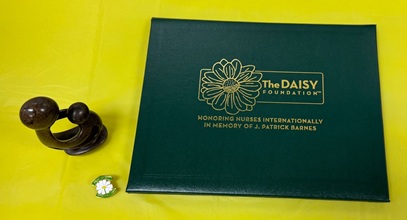
Apr 08, 2025
Celebrate our 2024 DAISY Honorees
Celebrate the 2024 DAISY Honorees from South University. We are so proud of our Honorees for all their hard work.

Apr 01, 2025
Mindfulness for Beginners: How to Get Started
In this next installment of the QEP series, learn some valuable tips to help improve your mindfulness.

Mar 19, 2025
First-Year Student Jeopardy Winners at Florida Academy of Anesthesiologist Assistants
Four first-year Anesthesiologist Assistant students win the Jeopardy game at the Florida Academy of Anesthesiologist Assistants conference.

Mar 12, 2025
Alumni Spotlight: From High School Dropout to CEO
Learn how Nadine Singh utilized her education from South University to create her own healthcare services.

Mar 11, 2025
Psychology Careers: Addiction and Substance Abuse Counselors
Learn how addiction counselors aid in substance abuse and addiction recovery.
Fill out the form and a representative will contact you today to better understand your academic goals plus answer any questions you may have.
Campuses offer flexible learning formats* including: on-campus, virtual instructions, and online courses.
*Clinical, practicum, and externship requirements exist in certain programs and require field experiences. Learning formats may not be flexible.
Success! Your request was submitted. We'll be in touch soon!
In the meantime, you can view some of our FAQs.
If you want to talk to an admissions representative ASAP, please contact us at 1-888-444-3404.
Success Stories
We're committed to helping our graduates make impact in their professional and personal lives. We applaud our pharmacy alumni and the difference they make. Check out what our graduates have to say.

